Source: Neil Patel Almost every day someone tells me, “Neil, I love your SEO tips, but I’m in a really small niche. What do I do?” Does that sound

Almost every day someone tells me, “Neil, I love your SEO tips, but I’m in a really small niche. What do I do?”
Does that sound familiar?
I’ve gotten so many questions like this that I had to address it in a blog post.
I’ll be totally transparent with you. This is a real problem.
Not everyone is in a giant niche like marketing or sales or yoga or health food.
If you’re in a niche like that, a smart content marketing strategy will pull in plenty of organic traffic.
A small niche on the other hand? It’s tough! There just aren’t a lot of people on the planet searching for your particular topic.
But does that mean you’re doomed to having just okay SEO? Not at all.
Here’s the good news: Even if you’re in a low-volume niche, you can still be an SEO master.
You’ll have to approach SEO a little differently, but you can still get great results.
Driving more traffic, increasing visibility, getting more backlinks––it’s all possible no matter what niche you’re in.
Now, does this mean your SEO will be simpler? Unfortunately, no.
In fact, your SEO process will consist of many of the usual suspects––technical SEO, page optimization, link profiles, and so forth.
So I’d first recommend getting to know SEO well. If you don’t already, check out this SEO guide.
Once you’ve done that, read on and take a look at how you can use SEO in a small niche that doesn’t have a lot of search volume.
The problem with low search volume
I know.
You want to get right to the good stuff. (Maybe you’ve already scrolled past this!)
But in order to really get the most out of your SEO, you need to understand what problems you’re going to be up against.
When I say “low-volume niche,” I’m talking about search volume.
Search volume is the number of searches that a particular keyword gets.
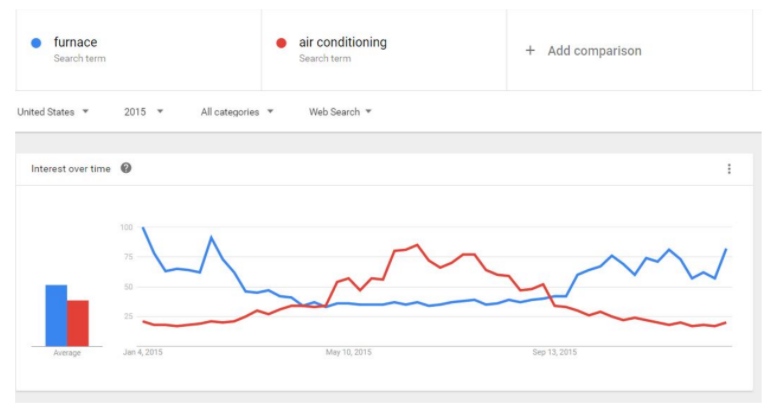
Most keywords are seasonal, meaning that they get used more during certain times of the year. An obvious example is holiday-related keywords.
As you see in the graph above, this rise-and-fall behavior is pretty typical for most keywords.
And for most keywords, even during the lowest point on the graph, there’s still a fairly high search volume.
Can you see the problem with low search volume already?

If your keyword ordinarily has a lower search volume, it’s not going to get a lot of attention. People might only search this keyword during very specific times or in certain situations.
You can check the search volume of your keyword using Google’s Keyword Planner. (You have to have an AdWords account to access this feature.)
Log into your AdWords account and click on Tools > Keyword Planner.
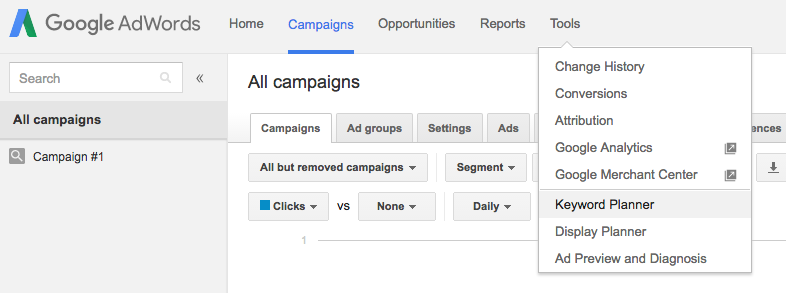
Choose “Get search volume data and trends.”
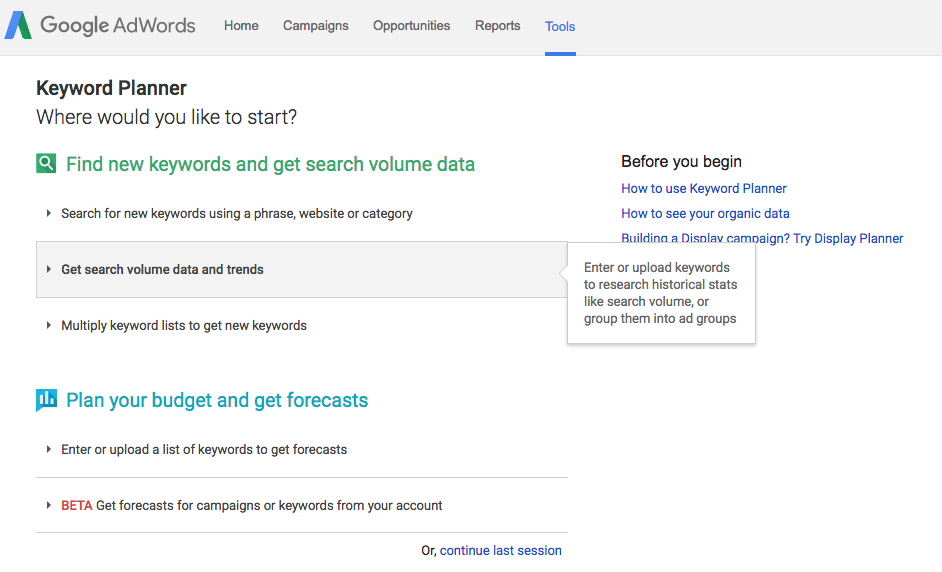
Enter your keyword(s) and click “Get search volume.”
You’ll see a general search volume range in the “Avg. monthly searches” box:
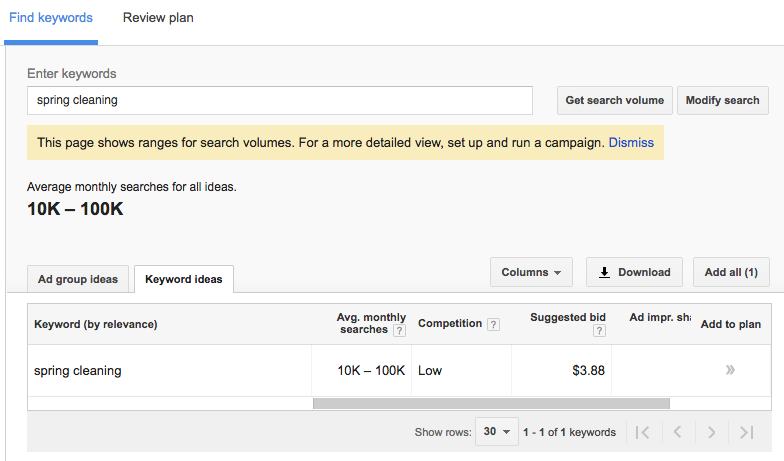
It’s also a good idea to cross-check this with another keyword volume checker.
There are several options you can choose from, but I like using KWFinder.com because of its awesome interface.
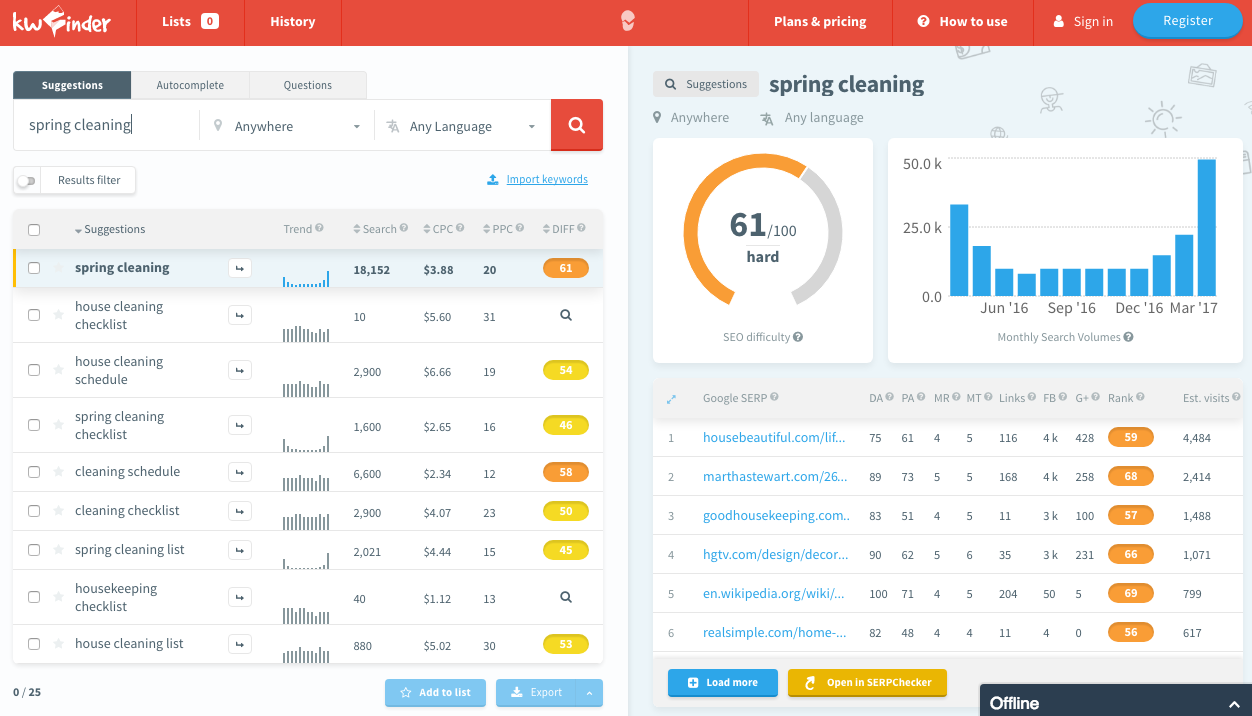
SERPS.com is another nice tool that breaks down volume, CPC, and overall value for you:
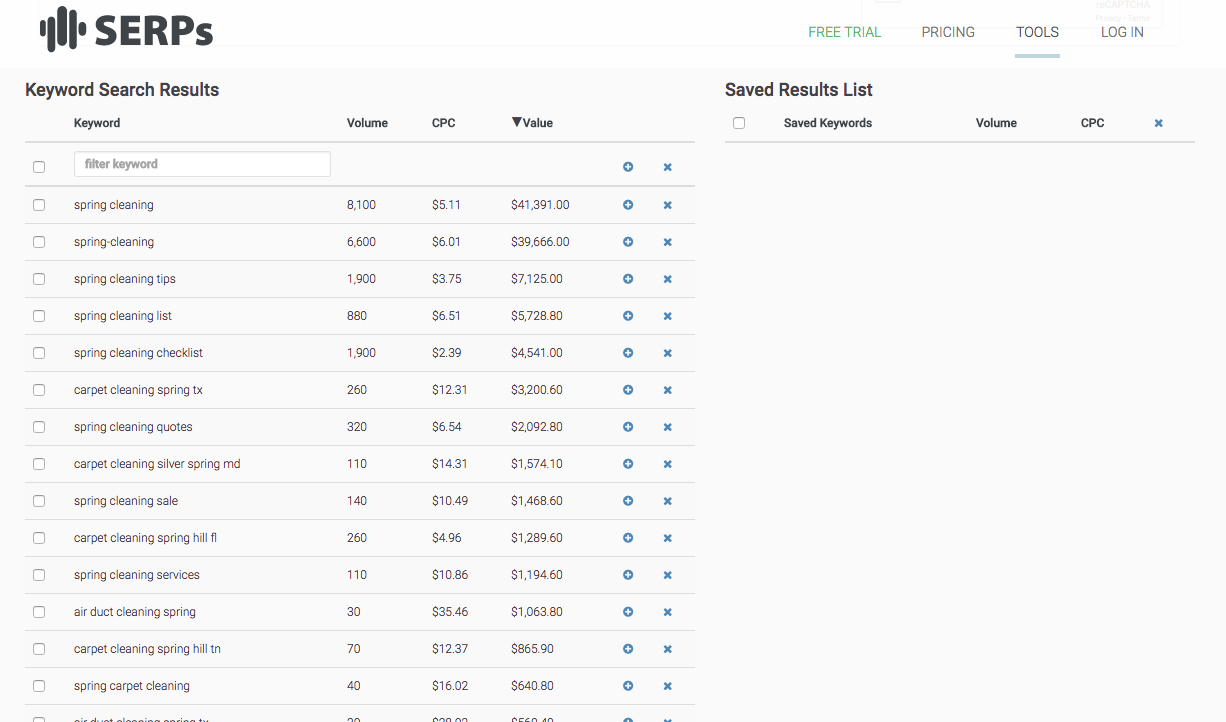
Using these resources, you can get an excellent idea of what your keyword’s general search volume is.
Unfortunately, some keywords can actually be too niche for Google.
So if you’re wondering if your keyword is too unusual or strange, you might be onto something.
Let’s try a really specific keyword like “inexpensive diving gear.” If you input that into Keyword Planner, you’ll see this:
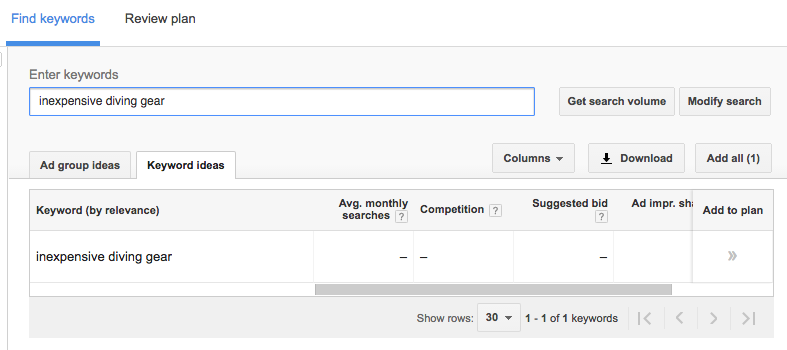
If you tried to use a keyword like this in a campaign, you could get a notice that it’s ineligible.
Google actually has official documentation that explains this:

So if your keyword is super low-volume, you may be unable to use it in your campaigns.
Now that’s a problem.
What’s funny is that specific keywords are usually way better than general ones. But there seems to be a fine line, and when you cross it, you’re looking at failed ad campaigns and low traffic.
What can you do if you’re in this situation?
As I’m about to show you, you can make a few small tweaks to put yourself back on the SEO map.
Is your keyword too specific or niche?

When you stop and think about it, getting keywords right is absolutely essential for low-volume SEO.
If you want people to find your site, you need to rank for keywords that they’d use. This is basic SEO, but if you’re in a niche with low search volume, you need to focus extra on this.
One of the problems I often see is with keyword specificity.
How general or specific should your keyword be? It’s a tricky question.
Ask anyone who’s into tea gift baskets––there is definitely an audience for incredibly specific keywords.
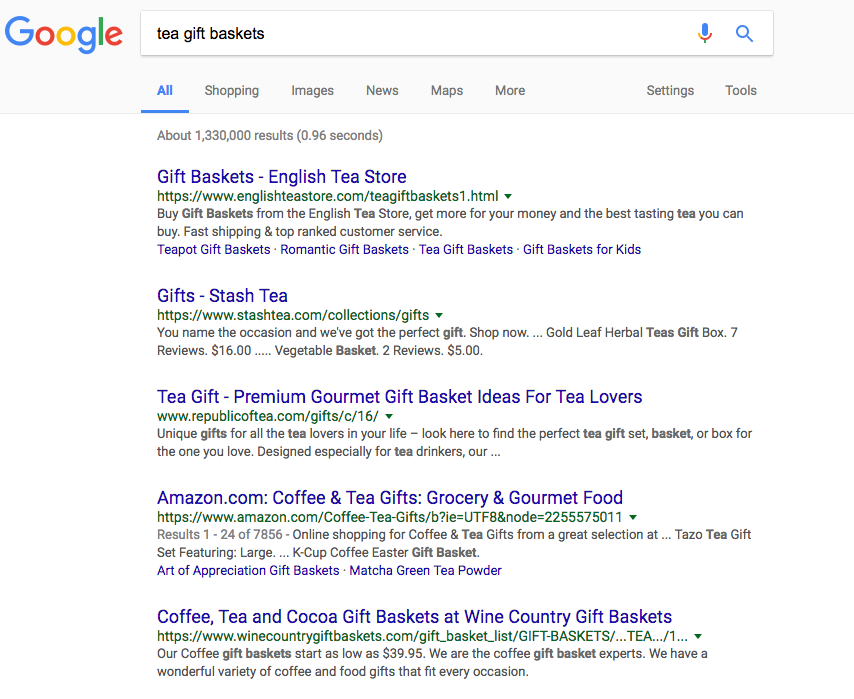
But sometimes, this can be your problem.
If your keyword is painfully specific (think “fluorescent lime green yarn”) or way too niche (“plastic begleri”), you could end up getting close to zero searches.
But how can you tell if your keyword is too specific or not?
Search volume (like we looked at in Google’s Keyword Planner) is a good indication.
With that being said, you need to be thinking about this before you even choose your keywords.
In other words, you need to do keyword research the right way.
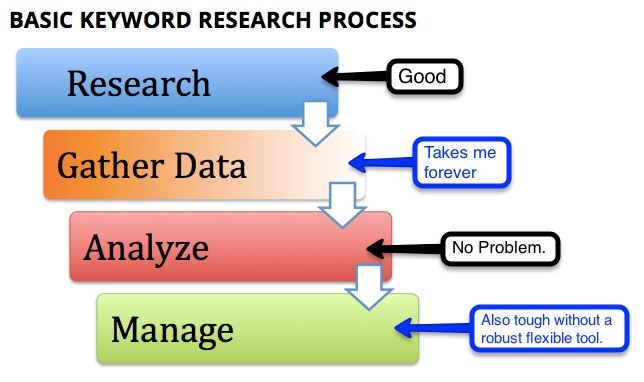
Start by asking yourself this question: “What do my users want to buy?”
We’re talking about SEO here, not marketing, so think about products and services, not benefits. (This is one of the only times you’ll want to do that.)

But if you already have keywords you’re trying to rank for, don’t worry. It usually just takes a small shift in focus to turn your SEO campaigns into successes.
Basically, you’ll have to think about ways to make your keywords more general. Sometimes, you might even need to make your keywords more specific, depending on search volume.
Let’s look at both processes.
Making your keywords more specific
Let’s say you sell something…

COMMENTS